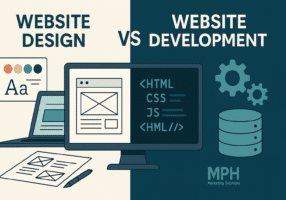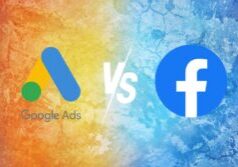In today’s social media-driven world, influencer marketing has become a must-have strategy for brands eager to reach their target audience effectively. By harnessing the authenticity and trust that influencers build with their followers, companies can create meaningful connections, enhancing brand visibility and loyalty in an ever-crowded marketplace. According to a recent MPH Marketing Solutions report, influencer marketing is more than a trend—it’s an essential tactic for business growth in the digital age.
What is Influencer Marketing?
Influencer marketing involves strategic partnerships between brands and influential individuals who have built credibility and a loyal following in specific niches. Often known as content creators, these influencers leverage platforms like Instagram, TikTok, and YouTube to promote products and services. Unlike traditional advertising, influencer marketing taps into the trust influencers have cultivated with their audiences, making brand messages more relatable and impactful.
The Rise of Influencer Marketing
Influencer marketing has experienced explosive growth, fueled by the increasing reliance on social media for product recommendations. Today’s consumers often look to trusted voices for purchasing guidance, and influencers have a unique power to sway decisions. The expansion of social platforms has cemented influencers as key players in modern marketing, offering businesses a direct and engaging way to connect with consumers.
Why Brands Embrace Influencer Marketing
- Cost-Effective Reach
Influencer marketing can be more budget-friendly than traditional advertising. Instead of hefty investments in television or print ads, brands can collaborate with influencers who target their ideal customers directly, delivering cost-efficient campaigns with a high impact. - Enhanced Authenticity and Trust
Consumers today value authenticity and are more responsive to genuine product endorsements than overt advertising. Influencers tend to promote products they truly endorse, which fosters trust and drives higher engagement rates, ultimately delivering better returns on investment (ROI). - Precision Targeting
Influencers have a deep understanding of their audience’s preferences, enabling brands to reach specific demographics effectively. This targeted approach helps maximize marketing efforts, ensuring brands connect with their ideal customers while minimizing wasted spend.
Types of Influencers
Influencer marketing offers flexibility, allowing brands to select from different types of influencers:
- Mega Influencers: Celebrities with millions of followers; ideal for wide reach but often lower engagement.
- Macro Influencers: Individuals with 100,000 to 1 million followers; they bring authority within niches and balance reach with engagement.
- Micro Influencers: With 10,000 to 100,000 followers, these influencers are experts in their fields, providing credible recommendations and high engagement.
- Nano Influencers: Influencers with fewer than 10,000 followers; often have the highest engagement rates due to their close-knit community.
Building an Effective Influencer Marketing Strategy
To succeed with influencer marketing, brands should develop a focused strategy:
- Define Target Audience: Knowing the audience is key to selecting the right influencers.
- Align Values: Choose influencers who share the brand’s values, creating authentic connections with audiences.
- Set Clear Goals: Brands should set clear objectives—whether it’s increasing sales, boosting awareness, or expanding their social reach—to guide their strategy.
Measuring Influencer Marketing Success
Success in influencer marketing depends on tracking Key Performance Indicators (KPIs) such as reach, engagement, website traffic, and sales. By using analytics tools, brands can assess performance and fine-tune their strategies to optimize results in real-time.
The Future of Influencer Marketing
The future of influencer marketing is dynamic, with emerging trends like virtual influencers, increased focus on diversity, and the rising importance of niche influencers who offer personalized experiences. Brands that adapt to these trends will stand out, connecting with consumers more deeply and securing long-term loyalty.
Conclusion
Influencer marketing has evolved into a foundational strategy for brands seeking genuine connections with consumers. By leveraging the power of trusted voices, businesses can amplify brand awareness, drive sales, and build lasting customer relationships. For companies ready to explore influencer marketing, MPH Marketing Solutions offers expert guidance to ensure a successful and impactful influencer strategy. Contact us today to talk more about how an influencer could help your business.
Lets Talk










